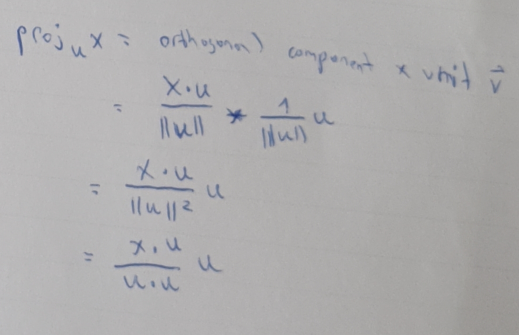Alex Balgavy
Just some stuff about me.
Linear algebra notes
Basis: linearly independent, spans subspace Linearly independent: only trivial solution. vectors are not multiples of each other Homogenous: contains zero vector, may have more solutions
standard matrix: $A = [ T(e_1) T(e_2) … T(e_n) ]$ T(x) == Ax
- ‘onto’: pivot in every row
- ‘one-to-one’: only trivial solution if = 0
Spans subspace if has solution
inverse: augment with I and reduce to get I on the left
Basis ColA: pivot cols of orig matrix (also “basis for subspace”)
Basis NulA: intersections with 0 vector in parametric form
coordinates from basis: $x1 \overrightarrow{b_1} + x2 \overrightarrow{b_2} + …$
eigen: $Ax = \lambda x \leftrightarrow (A - \lambda I) x = 0$
$A^n = P D^n P^{-1}$. P eigen vectors, D eigenval on diagonals
To diagonalize:
-
Eigenvalues
-
Bases for eigenvalues ($A - \lambda I$) solve
-
Write as P,D

Normalize $\rightarrow{v}: \frac{v}{|| v ||}$
Gram-Schmidt: $v - proj_w v$
Orthogonal: $u \dot v = 0$
Orthonormal: set is orthogonal, $||u|| = 1$ for every u
Characteristic polynomial: $det(A - \lambda I)$
SVD:
-
$A = U \Sigma V^T$
-
U: eigenvectors $AA^T$
-
V: eigenvectors $A^T A$
-
D: sqrt eigenvalues descending diagonal
-